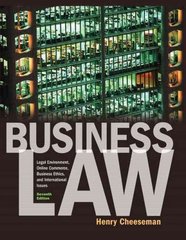Question
Exercise 5: A firm's production function is Q(K, L) = [bK^+ (1 b)L^ ]^/ , with 1. 1. Show that the function Q(K, L) is
Exercise 5: A firm's production function is Q(K, L) = [bK^+ (1 b)L^ ]^/ , with 1.
1. Show that the function Q(K, L) is homogeneous of degree .
2. Compute the marginal rate of technical substitution, and show that it is independent of .
3. Show that the marginal products of Q(K, L) satisfies the relation K Q/K + L Q/L = Q(K, L). Now suppose that = 1, b = 1/2, = 1, and = 2. Consider point (K0, L0) = (0, 2).
4. Estimate the overall effect on Q when K increases by 0.15 from K0 and L increases by 0.1 from L0.
5. Now the firm would like to decrease L from L0 by 0.2, to keep the total output unchanged, the firm wants to know how much K should be increased from K0. Can we use the implicit function theorem to estimate the change of K in this case? Explain your answer.
Step by Step Solution
There are 3 Steps involved in it
Step: 1

Get Instant Access to Expert-Tailored Solutions
See step-by-step solutions with expert insights and AI powered tools for academic success
Step: 2

Step: 3

Ace Your Homework with AI
Get the answers you need in no time with our AI-driven, step-by-step assistance
Get Started


